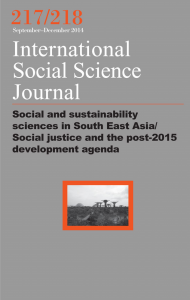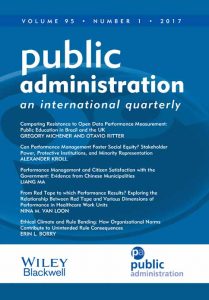When Prosumption is Law, the Prosumer is King (for Now)
 by pj.rey
by pj.rey
Smokers, if I told you that I could get you high-quality cigarettes for half the usual price, you’d probably smartly ask, “What’s the catch?” “The catch,” I might respond, “is that I need five minutes of your labor-time per pack.” This is precisely the bargain customers are making with a Brookline, New Hampshire store called Tobacco Haven – a bargain we social theorists might call prosumption. The shop houses a roll-your-own cigarette machine into which customers feed piles of loose tobacco and assemble their own packs.
The prosumer (who combines consumption and production into a single activity) has been discussed widely on this blog (see, for, example: prosumers of the world unite, Light capitalism, prize economics, and the prosumer, Out of Print: Prosumption and the Triumph of New Media, the prosumer and intimate profit). Most analysis has focused on examples connected to the digital world. A recent story, however, illustrates how relevant this concept is even offline.
Customers are happy to spend a few extra minutes to get dirt cheap cigarettes, and Tobacco Haven is happy with the tidy little profits it sweeps up facilitating the work of the consumer. The state of New Hampshire, on the other hand, isn’t amused and is suing the tobacco shop. New Hampshire claims that regardless of who does the production – company or consumer – the place where cigarettes are assembled should be considered a “cigarette manufacturer” and thus be bound by the decade-old tobacco industry settlement as well as obliged to pay state and local taxes.
The ruling on this issue, however, has broader implications than the price of cigarettes in Brookline. Essentially, the courts are going to rule whether or not the labor a consumer performs to obtain a commodity for personal use is taxable as if it were manufacturing activity. If we start down this path, what’s next? Pumping one’s own gas? Filling one’s own fountain drinks? Assembling Ikea furniture? Updating a Facebook profile?
Hard to tell where to draw the line, but one thing is clear: prosumption will be a significant issue for the courts of the 21st Century.
![]() “Roll-It-Yourself Tobacco Shop Under Fire” by Sheryl Rich-Kern
“Roll-It-Yourself Tobacco Shop Under Fire” by Sheryl Rich-Kern
![]() “The Intersecting Roles of Consumer and Producer: A Critical Perspective on Co-production, Co-creation and Prosumption,” By Ashlee Humphreys and Kent Grayson
“The Intersecting Roles of Consumer and Producer: A Critical Perspective on Co-production, Co-creation and Prosumption,” By Ashlee Humphreys and Kent Grayson
Add to: Facebook | Digg | Del.icio.us | Stumbleupon | Reddit | Blinklist | Twitter | Technorati | Yahoo Buzz | Newsvine





What a new perspective on prosumption. I suppose this would be a serious tax boon for the government, but how would it impact consumption and production more broadly?
Keri
I think a ruling of this sort would ultimately be untenable. It is unimaginable the we would follow such logic out to its fullest extent. Could the government really tax facebook for all the free labor provided by users through their individual consumption of the site?
Prosumption still remains completely outside any legal discourse, so while newly emergent social phenomena are forcing the courts to address issues created by prosumption, I don’t think there exists an awareness on the part of the juridical system that it is even engaged in codifying the proliferating processes of prosumption.
This has a couple important implications: 1.) We are likely to see many disparate rulings that only ex post facto are understood to be directed at the same phenomena. Ultimately, we must expect the conflicting precedents set by such cases to culminate in a high court ruling. 2.) Prosumption is likely to emerge in popular discourse, resulting in the crystallization of a new ideology associated with the new capitalist institutions for which prosumption is a sine qua non. Nathan Jurgenson has argued previously that cyberlibertarianism might be the ideology of prosumer capitalism. I concur, and would argue that Silicon Valley has already presented itself as the vanguard of this emergent ideology.
Despite the emergence of these new prosumer institutions and this new prosumer ideology, however, production and consumption in large sectors of society will probably remain unaffected in the foreseeable future.